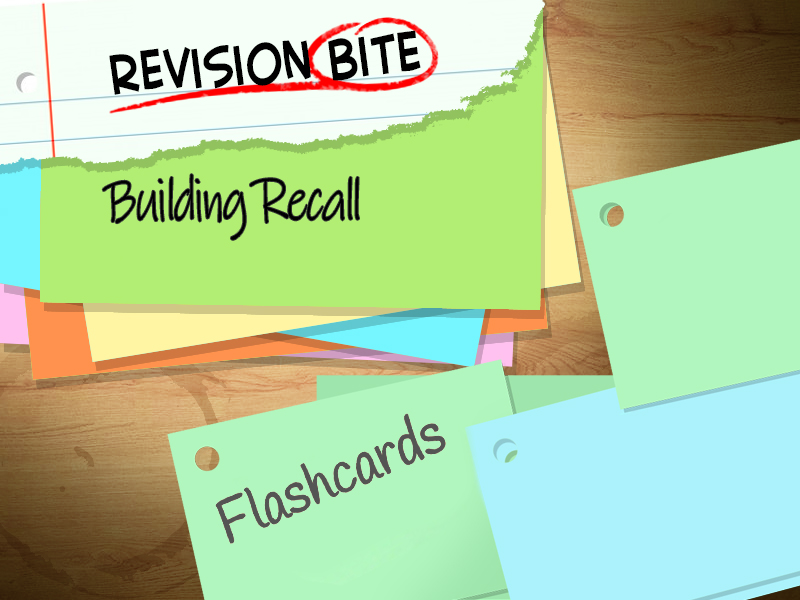Revision Bites aims to equip you with a number of potentially powerful new ways to approach your learning, but perhaps the most important of all is ‘recall’, or ‘information retrieval’. In this Bite we’ll explain why this approach is so crucial to deep and long-term learning, as well as looking at ways you can easily build recall into your revision technique.

What is Recall?
Recall – sometimes known as information retrieval – is simply the process of returning to subjects you have already studied over time to strengthen your understanding and memory retention. There’s a lot of evidence to suggest that such an approach is much more beneficial than just ticking topics off as completed and never looking at them again.
Why is Recall important?
Recall is important for two reasons. First, by returning to material and testing understanding you are reinforcing your learning and cementing that knowledge not just for the short-term but for the longer-term too (one common problem with inefficient revision methods is that you may succeed in memorising something long enough to pass the exam, but you don’t retain that knowledge for your further studies, despite the fact that each subsequent year of study tends to build on the previous year’s knowledge). Second, by constantly checking your knowledge, you can focus more time on the things that you are struggling to understand or retain, thus making your revision ever more efficient.
How do I incorporate Recall into my revision?
There are a number of different techniques which can help you build recall into your revision strategy – here are a few common approaches to get you started:
 |
The ‘blank page’ method – the simplest method of recall is to write down everything you know about a subject or topic you’ve studied on a blank piece of paper. Allow yourself 5 minutes or so to brainstorm everything you can remember, then go back to your notes and quickly check how much you recalled. Then schedule some time to work on the bits you missed. Depending on your preferences you may prefer to brainstorm in a sketch or out loud rather than producing linear notes or bullet points. There’s no right or wrong way to go about it – just experiment with what works for you. |
 |
Questions, questions – another very effective technique is to use past papers or sample questions to test your knowledge of a topic. If you don’t have these available, write your own questions – this is another great way of thinking about how you’ll be asked about things in the exam. You can find more detail about this approach in Exam Bites 4. |
 |
Flashcards – a popular variation of the ‘questions’ approach is to use flashcards. Blank index cards are ideal for this purpose, although pieces of paper cut down to that size will work just as well. When you’re revising a particular topic, write questions on one side of the card, and the answer on the other. When you can answer all the questions, flip the cards around so that you see the answer and have to come up with the question. One advantage of flashcards is that they’re highly portable – even a short bus journey or a gap between appointments can be transformed into a high quality study session. |
Incorporating recall into your revision is a very simple but extremely effective step, and can be the difference between memorising something in the short-term and actually knowing it for the long-term. Experiment with some of the methods we’ve suggested, and with any ideas you may have of your own, and schedule recall sessions into your timetable for the remaining revision period if you haven’t already done so. It’s an excellent way of boosting your confidence about the things you do know, and of identifying the areas you still need to work on. And that puts you firmly in control of your revision.
Further advice:
For more on using questions as part of your revision strategy, go to Exam Bites 4
Read what The Learning Scientists have to say about retrieval practice
In this video, a final year medical student discusses active recall and suggests some practical ways of going about it.
